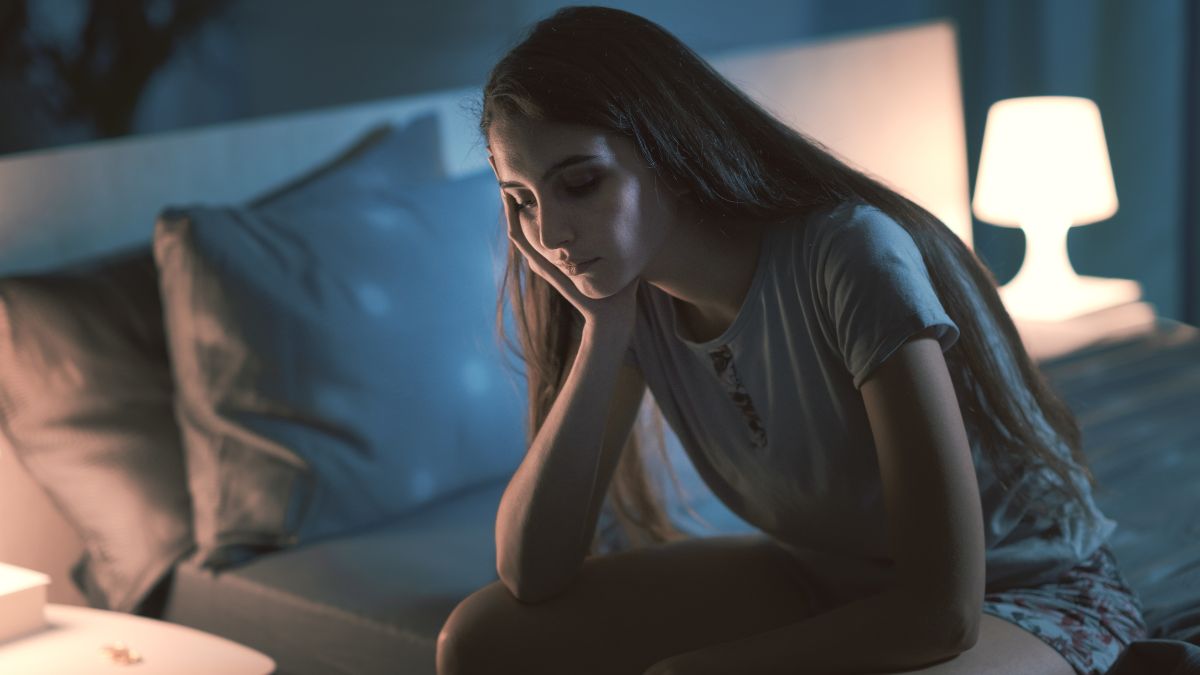- By Iram Hussain
- Sun, 29 Jun 2025 05:43 PM (IST)
- Source:JND
The tranquility of a restful night's sleep can be abruptly shattered when you find yourself wide awake in the dead of night with no apparent reason for the disruption. The frustration is palpable as you lie there, struggling to drift back off to sleep. Waking up in the middle of the night, especially at 3 am, an ungodly hour is a common phenomenon with most people experiencing multiple brief awakenings without even realising it. However, when these awakenings stretch on, leaving you feeling restless and alert, it can be a distressing experience.
The darkness of the night seems to amplify the anxiety, making it even more challenging to calm your racing mind and succumb to slumber once again. But have you ever wondered that why you usually wake up at this off hour. Here, we've compiled some potential reasons to constanbtly wakeup at 3 am every night and also listed easy strategies to prevent it.
Causes Of Waking Up At 3 AM
Stress
Stress may be the culprit behind 3 a.m. awakenings. When stressed, your body's sympathetic nervous system kicks in, jolting you awake with a racing heart and elevated blood pressure. Uncertainty or anxiety in areas like job, relationships, health or finances can trigger this stress response, disrupting sleep.
Insomnia
Insomnia is a prevalent sleep disorder marked by recurring midnight wakefulness and struggles to drift back to sleep. A significant portion of the population experiences insomnia with chronic cases defined as trouble falling or staying asleep three or more nights a week for three or more months.
ALSO READ: Haldi Milk vs Ashwagandha Tea: Which Bedtime Drink Works Better For Restful Sleep?
Ageing
Ageing significantly impacts sleep cycles, leading to decreased sleep quality and increased awakenings. As people age, they spend less time in deep sleep, making them more susceptible to disruptions from noise and light. Additionally, sleep-wake times often shift.
Medications
Certain medications can disrupt sleep patterns, leading to 3 a.m. awakenings. Prescription medications such as those for depression, ADHD and high blood pressure can interfere with sleep quality. Additionally, over-the-counter medications like decongestants and weight loss pills can also cause sleep disturbances.

Ways to prevent midnight awakenings (Image Credits: Canva)
Lifestyle Changes To Follow
Create a sleep-conducive environment- Ensure your bedroom is a comfortable, dark and quiet sanctuary that promotes relaxation and sleep.
Timing is everything- Make sure you're genuinely sleepy before heading to bed. If 20 minutes pass and sleep eludes you, rise from bed and indulge in a calming pursuit.
ALSO READ: Can Poor Sleep Really Increase Your Risk of Alzheimer’s Disease? Know From Doctor
Establish a calming pre-sleep routine- Develop a soothing nighttime routine to signal your body that it's time to sleep. Activities like reading, meditation or deep breathing exercises can help calm your mind and prepare your body for rest.
Disconnect from screens before bed- The blue light emitted from smartphones, tablets and computers can suppress melatonin production, making it harder to fall asleep.
Exercise wisely- Engaging in regular physical activity can significantly enhance sleep quality, however, it's essential to avoid vigorous exercise. Instead, opt for relaxing activities like yoga or stretching to help your body wind down.
Be mindful of caffeine intake- Consuming caffeinated beverages, especially in the afternoon and evening can disrupt sleep patterns.
Early dinner- Finish eating dinner several hours before bedtime to allow for proper digestion. Avoid spicy or heavy foods that can cause discomfort and indigestion.
Disclaimer: This content, including suggestions and advice, provides generic information only. It is in no way a substitute for qualified medical opinion. Always consult a specialist or your own doctor for more information before making any drastic changes in your lifestyle.

